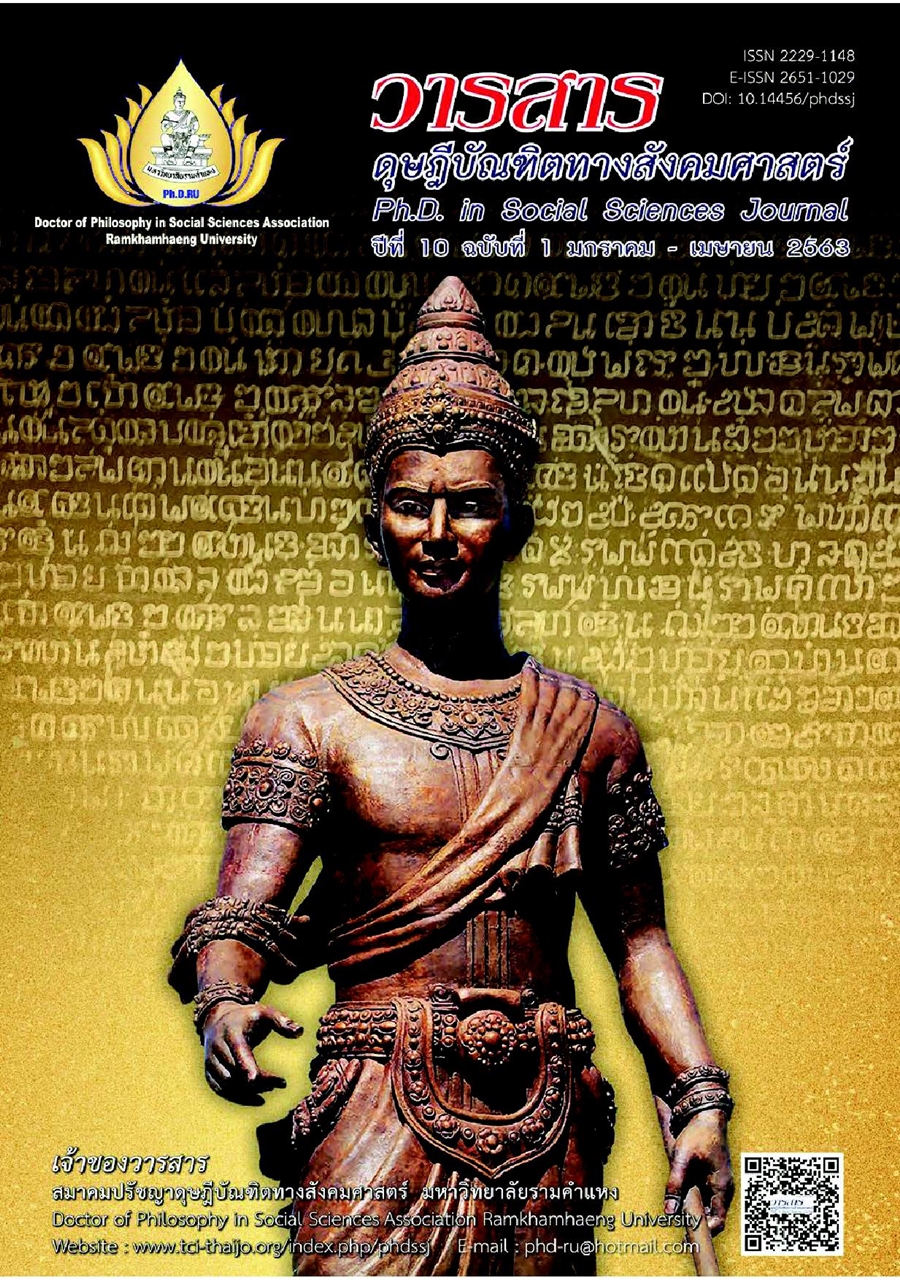ตัวแบบสมการโครงสร้างของปัจจัยที่มีอิทธิพลต่อพฤติกรรมการใช้บริการสปาของผู้บริโภคในเขตกรุงเทพมหานคร
Main Article Content
บทคัดย่อ
การวิจัยครั้งนี้มีวัตถุประสงค์เพื่อศึกษาทัศนคติอิทธิพลคนรอบข้างการควบคุมพฤติกรรมความตั้งใจใช้บริการสปา ความพึงพอใจ ความไว้วางใจ และพฤติกรรมการใช้บริการสปาของผู้บริโภค เป็นการวิจัยเชิงปริมาณ จำนวน 400 คน
ผลการวิจัย พบว่า ผู้ตอบใช้บริการเป็นหญิงมากกว่าชาย ส่วนใหญ่มีช่วงอายุ 25-34 ปี สมรสแล้ว มีรายได้อยู่ช่วง 20,000-40,000 บาท มีการศึกษาระดับปริญญาตรีและทำงานในภาคเอกชน กลุ่มตัวอย่างเห็นว่าสปามีประโยชน์ต่อสุขภาพ มีการนำศาสตร์ที่เป็นภูมิปัญญาพื้นบ้านและสมุนไพรไปใช้บริการสปาทั้งในรูปแบบของการนวดกลิ่น และเสียงผลการวิเคราะห์ตัวแบบสมการโครงสร้างพบว่าอิทธิพลคนรอบข้าง การรับรู้การควบคุมพฤติกรรมและความพึงพอใจมีอิทธิพลทางตรงต่อความตั้งใจการใช้บริการสปา ความไว้วางใจมีอิทธิพลต่อทัศนคติและความพึงพอใจ แต่ความพึงพอใจ ความตั้งใจ และการรับรู้การควบคุมพฤติกรรมไม่มีอิทธิพลทางตรงต่อพฤติกรรมการใช้ประโยชน์สปา
Article Details
บทความวิชาการ บทความวิจัย และบทวิจารณ์หนังสือในวารสารดุษฎีบัณฑิตทางสังคมศาสตร์ เป็นความคิดเห็นของผู้เขียน มิใช่ของคณะผู้จัดทำ และมิใช่ความรับผิดชอบของสมาคมปรัชญาดุษฎีบัณฑิตทางสังคมศาสตร์ มหาวิทยาลัยรามคำแหง (กรณีการทำวิจัยในมนุษย์ ผู้วิจัยต้องผ่านการอบรมจริยธรรมการวิจัยในมนุษย์ และนำหลักฐานมาแสดง)
เอกสารอ้างอิง
Ajzen, I., & Fishbein, M. (1980). Understanding attitudes and predicting social behavior. Prentice Hall.
Ajzen, I. (2002). Perceived behavioral control self-efficacy, locus of control and the theory of planned behavior. Journal of Applied Social Psychology, 32, 1-20.
Department of Industrial Promotion. (2011). Spa business in hotels and resorts. Author [In Thai]
Department of Trade Negotiations Business. (2011). Service: SPA and Thai massage. Retrieved from https://mdh.hss.moph.go.th/uploadFiles/document/D00000001019_25101.pdf [In Thai]
Kim, S., & Pysarchik, D. T. (2000). Predicting purchase intentions for uni-national and bi-national products. International Journal of Retail & Distribution Management, 28(6), 280-291. [In Thai]
Lorpraditpong, N. (2006). Customer satisfaction survey handbook (2nd ed.). Thong Printing Group Meeting. [In Thai]
McKnight, D. H., & Chervany, N. L. (1996). The meanings of trust, University of Minnesota MIS Research Center Working Paper series, WP 96–04, Retrieved from https://misrc.umn.edu/wpaper/WorkingPapers/9604.pdf
Ministry of Tourism of Thailand, Department of Industrial Promotion. (2011). Spa business in hotels and resorts. Author. [In Thai]
Morwitz, V. G., & Fitzsimons, G. J. (2004). The mere-measurement effect: Why does measuring intentions change actual behavior?. Journal of Consumer Psychology, 14(1&2), 64-73.
Sritham, C. (2009). The demand characteristics of consumers’ behavior in using spa services. Master' thesis of economics, Chiang Mai University. [In Thai]
Witokco, P. (1989). Teaching documents for teenage behavioral sets sychology and adolescent behavior. Sukhothai Thammathirat Open University. [In Thai]
Yzer, M. (2012). Perceived behavioral control in reasoned action theory: A dual-aspect interpretation. The Annals of the American Academy of Political and Social Science, 640(1), 101-117.


